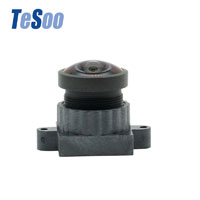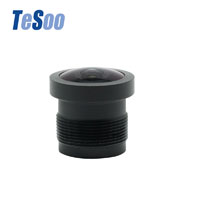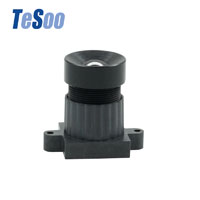Requirements for the Quality of Optical Lenses
The quality of optical glass lenses has the following requirements.
Ⅰ. The specific optical constants of optical lenses and the consistency of the optical constants of the same batch of glass
Each type of optical glass has a specified standard refractive index value for light of different wavelengths as a basis for optical lenses suppliers to design optical systems. Therefore, the optical constants of the optical glass produced by the factory must be within a certain tolerance range of these values, otherwise the actual imaging quality will not match the expected results in the design and the quality of the optical instrument will be affected.
At the same time, because the same batch of instruments are often made of the same batch of optical glass, in order to facilitate the unified calibration of the instruments, the allowable deviation of the refractive index of the same batch of glass is stricter than their deviation from the standard value.
Ⅱ. How to reduce the light absorption coefficient of optical lenses?
The brightness of the optical system imaging is proportional to the transparency of the glass, and the transparency of the optical glass to a certain wavelength of light is represented by the light absorption coefficient Kλ. After the light passes through a series of prisms and lenses, part of its energy is lost to the interface reflection of the optical parts and the other part is absorbed by the medium (glass) itself.
The former increases as the refractive index of the glass increases, and this value is large for high refractive index glasses. For example, a surface light reflection loss of heavy flint glass is about 6%. Therefore, for an optical system containing multiple thin lenses, the main way to improve the transmittance is to reduce the reflection loss on the surface of the lens, such as coating the surface with an antireflection coating.
For large-sized optical parts such as the objective lens of an astronomical telescope, due to its large thickness, the transmittance of the optical system is mainly determined by the light absorption coefficient of the glass itself. The optical absorption coefficient of glass can generally be made less than 0.01 by improving the purity of the glass raw material and preventing any coloring impurities from mixing in the whole process from batching to smelting.
TeSoo Optoelectronic is one of the leading professional varifocal lens manufacturers in China. Founded in 2009 with an investment of more than 5 million US dollars, it has set up a R&D and manufacturing headquarters in Guangdong and an optical glass parts factory in Jiangxi.
It has now become one of the main suppliers of automotive lenses, CCTV lenses, M12 lenses, distortion-free lenses, machine vision lenses, fisheye lenses, etc. It has more than 400 employees, and has advanced high-precision equipment and strictly implements ISO9001 & ISO/IATF16949 quality management system standards. Tesoo produces over 10 million lenses annually with high quality and competitive prices. If you have any need, please feel free to consult us.
Popular Camera Lens
Hot Camera Lens Articles

 English
English 

